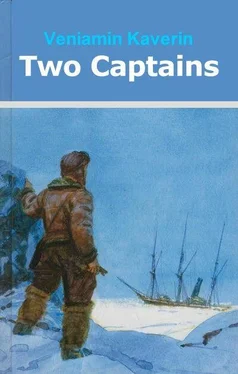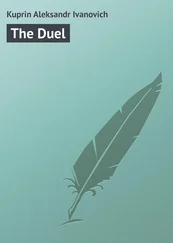I had known from books, reports and personal impressions what peacetime life was like among those people, who had worked to turn the Northern Country into a smiling hospitable land, who had tapped the incalculable resources that lay within the Arctic Circle, who had built towns, docks, mines and factories there. Now, during the war, I saw all this prodigious energy dedicated to the defence of this land and of these gains. I might be told that the same thing happened in every corner of our land. Of course it did, but the severe conditions of the North gave to it a special, expressive touch.
I don't think I have been able to answer all the questions of my correspondents. Who served as the prototype of Nikolai Antonich? Where did I get Nina Kapitonovna? What truth is there in the story of Sanya's and Katya's love?
To answer these questions I would have to ascertain, if only approximately, to what extent one or another figure was an actor in real life. As regards Nikolai Antonich, for instance, no such effort on my part would be needed. I have changed only a few outward features in my portrait of the real headmaster of the Moscow school which I finished in 1919. The same applies to Nina Kapitonovna, who could but recently be met in Sivtsev Vrazhek, wearing the same green jacket and carrying the same shopping bag. As for the love of Sanya and Katya, I had had only the youthful period of this story told to me. Exercising the prerogative of the novelist, I drew from this story my own conclusions, which seemed to me only natural for the hero of my book.
One schoolboy, by the way, wrote telling me that exactly the same thing had happened to him-he had fallen in love with a girl and kissed her in the school grounds. "So that now that your book Two Captains is finished, you can write about me," the boy suggested.
Here is another incident which, indirectly, answers the question as to what truth there is in the love of Sanya and Katya. One day I received a letter from Ordzhonikidze (Northern Caucasus) from a lady named Irina N. who wrote, "After reading your novel I feel certain that you are the man I have been looking for these last eighteen years. I am persuaded of this not only by the details of my life given in the novel, which could be known to you alone, but also by the places and even the dates of our meetings in Triumfalnaya Square and outside the Bolshoi Theatre…" I replied that I had never made any dates with my correspondent in Triumfalnaya Square or outside the Bolshoi Theatre, and that I would have to make inquiries of the Arctic pilot who had served as the prototype for my hero. But the war started and this strange correspondence broke off.
Irina N.'s letter reminds me of another incident, which equated literature, as it were, with real life. During the blockade of Leningrad, in the grim, forever memorable days of late autumn of 1941, the Leningrad Radio Broadcasting Committee asked me to convey a message to the young Communists of the Baltic in the name of Sanya Grigoriev. I pointed out that although I had portrayed in Sanya Grigoriev a definite person, a bomber pilot, who was fighting at the time on the Central Front, he was nevertheless only a literary character.
"So what of it," was the answer. "It makes no difference. Write as if the name of your literary hero could be found in the telephone book."
I consented, of course. In the name of Sanya Grigoriev I wrote a message to the Komsomol boys and girls of Leningrad and the Baltic, and in response letters addressed to my literary hero came pouring in, expressing confidence in victory.
I remember myself a boy of nine entering my first library; it was quite a small one, but seemed very big to me then. Behind a tall barrier, under paraffin lamp, stood a smooth-haired woman in spectacles wearing a black dress with a white collar. The barrier was so high-at least to me-and the lady in black so forbidding that I all but turned tail. In a voice overloud through shyness I reported that I had already turned nine and was therefore entitled to become a card holder. The forbidding lady laughed and bending over the barrier the better to see the new reader retorted that she had heard of no such rule.
In the end, though, I managed to join the library, and the time flew so quickly in reading that one day I discovered with surprise that the barrier was not all that high, nor the lady as forbidding as I had first thought.
This was the first library in which I felt at home, and ever since then I have always had this feeling when coming into a house, large or small, in which there are bookshelves along the walls and people standing by them thinking only one thing-that these books were there to be read. So it was in childhood. And so it was in youth, with long hours spent in the vast Shchedrin public library in Leningrad. Working in the Archives Department, I penetrated into the very heart of the temple of temples. Raising my eyes-tired, because reading manuscripts makes them tire quickly-I watched the noiseless work of the librarians and experienced again and again a feeling of gratitude. That feeling has remained for a lifetime. Wherever I go, to whatever place fate brings me, I always ask first thing, "Is there a library here?" And when I am told, "There is," that town or township, farm or village, becomes closer, as if irradiating a warm, unexpected light.
In Schwarz's play "The Snow Queen", the privy councillor, a dour individual who deals in ice, asks the storyteller whether there are any children in the house, and on learning that there are, he shudders, because at the sound of children's voices the ice of the blackest soul melts. So does a house in which there are books differ from those in which there are none.
The best writers can be compared to scouts into the future, to those brave explorers of new and unknown spaces, of whom Fridtjof Nansen, the famous Norwegian explorer, wrote: "Let us follow the narrow tracks of the sled runners and those little black dots laying a railway, as it were, into the heart of the unknown. The wind howls and sweeps across these tracks leading into the snowy wastes. Soon they will disappear, but a trail has been blazed, we have acquired a new banner, and this deed will shine forever through the ages."
V. Kaverin
PART ONE
CHILDHOOD
Chapter one
THE LETTER. IN SEARCH OF THE BLUE CRAB
I remember the big dirty yard and the squat little houses with the fence round them. The yard stood on the edge of the river, and in the spring, when the flood-water subsided, it was littered with bits of wood and shells, and sometimes with things far more interesting. On one occasion, for instance, we found a postman's bag full of letters, and afterwards the waters brought down the postman himself and deposited him carefully on the bank. He was lying on his back, quite a young man, fair-haired, in postman's uniform with shining buttons; he must have polished them up before setting out on this last round.
A policeman took the bag, but Aunt Dasha kept the letters-they were soaking wet and of no further use to anybody. Not all of them were soaked though. The bag had been a new one, made of leather, and was closed tight. Every evening Aunt Dasha used to read one of the letters out, sometimes to me alone, sometimes to the whole yard. It was so interesting that even the old women, who used to go to Skovorodnikov's to play cards, would drop the game and join us. There was one letter which Aunt Dasha used to read more often than any other, so often, in fact, that I soon got to know it by heart. Many years have passed since then, but I can still remember it from the first word to the last. "Dear Maria Vasilievna,
"I hasten to inform you that Ivan Lvovich is alive and well. Four months ago, on his orders, I left the schooner along with thirteen of the crew. I hope to see you soon, so I shall not describe our difficult journey across the pack-ice to Franz Josef Land. We suffered terrible hardships and privations. I will only say that I was the only one of our party to reach Cape Flora safely (not counting a pair of frostbitten feet). I was picked up by the St. Phocas, of Lieutenant Sedov's Expedition, and taken to Archangel. Although I have survived, I have little reason to rejoice, as I shall soon be undergoing an operation, after which I can only trust in God's mercy, for God alone knows how I'm going to live without feet. What I have to tell you is this.
Читать дальше












